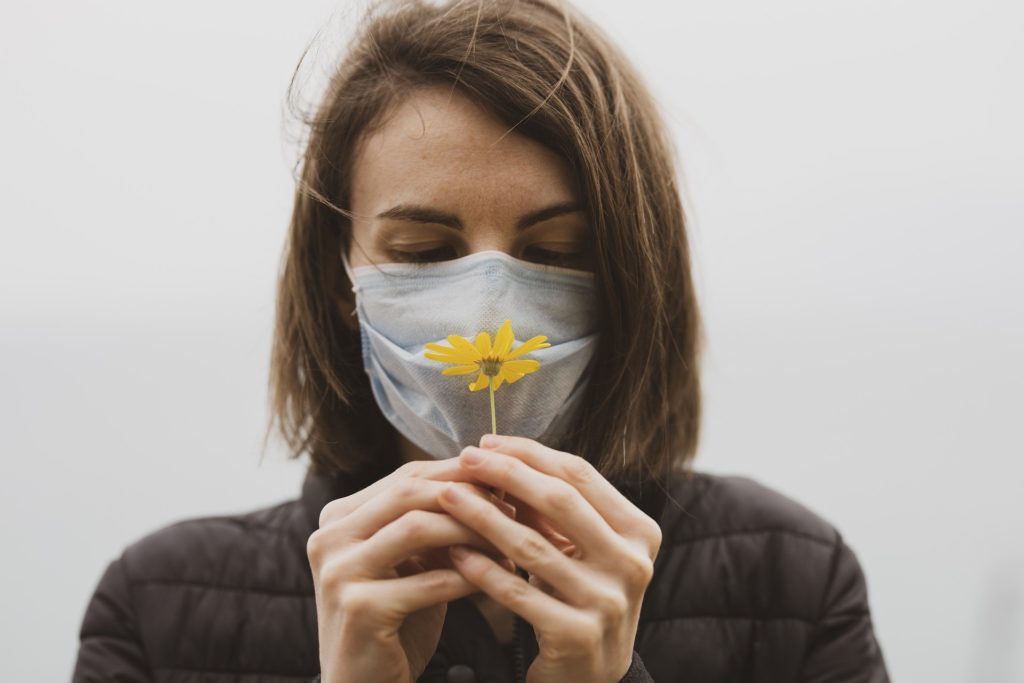Losing one’s sense of smell is a primary symptom many COVID-19 positive people experience. New research explains how the virus causes this.
If your nose is blocked, your sense of smell is affected. Loss of smell is thus a common symptom of a viral infection like the common cold, sinus or other respiratory tract infections. The sense generally returns once symptoms have cleared.
However, the pattern of smell loss is different with the novel coronavirus (SARS-CoV-2). Some have reported that they lost their sense of smell for it to return only a week later, while others experienced weeks without their sense of smell. Their nose was not blocked, making the loss of smell curious.
The return to normalcy suggests an obstructive smell loss in which the aroma molecules cannot reach the receptors in the nose.
SARS-CoV-2 works by attaching to ACE2 receptors on the surface of cells that line the upper respiratory tract and then invading the cells. Once there, the virus replicates and triggers the immune system’s inflammatory response.
Researchers initially thought the virus was infecting and destroying the olfactory neurons, but an international collaboration discovered that the ACE2 proteins are not found in the olfactory neurons.
CT scans now reveal that the olfactory cleft, which is the part of the nose that does the smelling, is blocked with swollen soft tissue and mucus in COVID-19 positive cases. When the body’s inflammatory response is triggered by SARS-CoV-2, it likely causes this swelling. This swelling in the nose is known as a cleft syndrome, and does not affect the appearance of the nose nor the patients ability to breathe through it.
The swelling subsides once the immune system fights off the virus, and the sense of smell returns to normalcy. In some cases, the inflammation can be so severe than it damages the tissues involved as well as other nearby cells like the olfactory cells, which can result in an elongated period of loss of smell. However, olfactory neurons can regenerate, they just need time.
Picture: Pixabay

